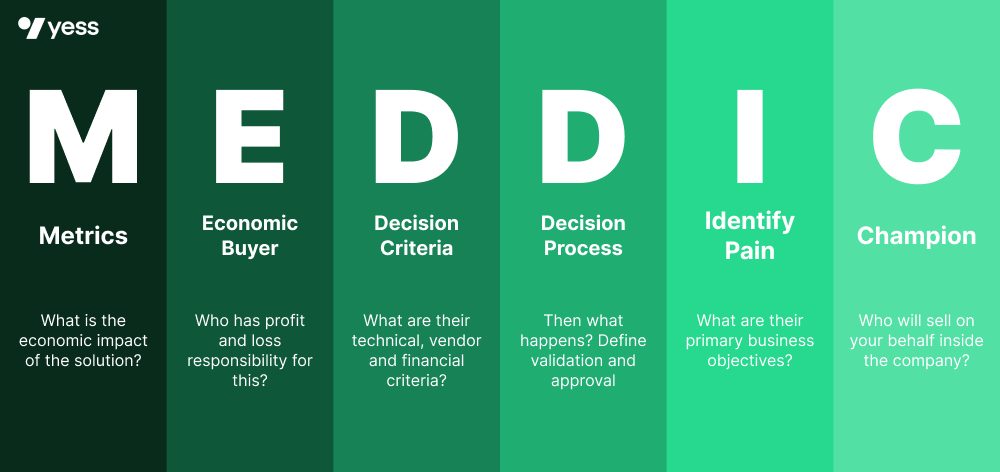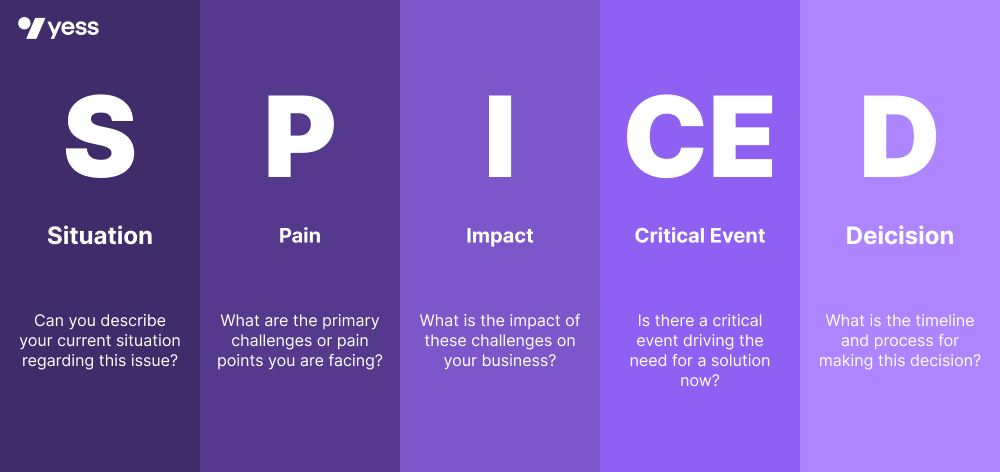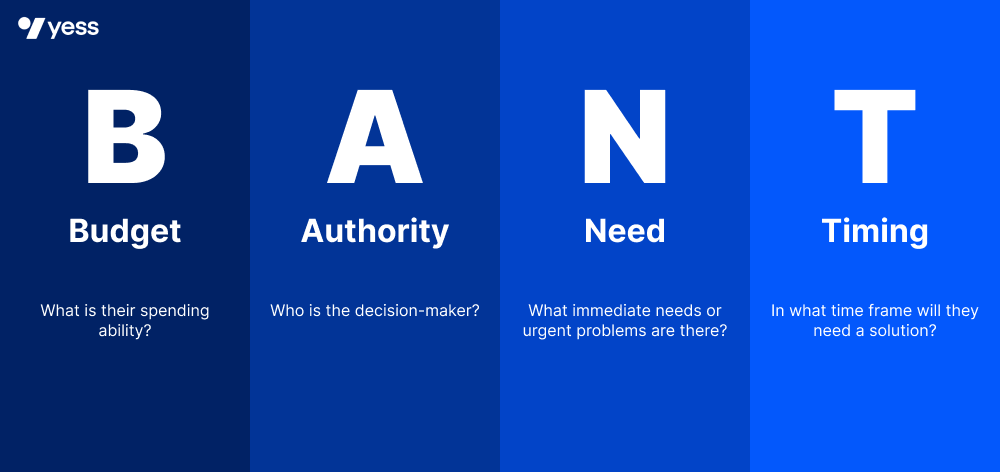Picture this: You’re in a discovery call with a potential client, and everything seems to be going well. But when it comes time to write the proposal, you realize you’re missing key information. Sound familiar? This scenario is all too common in the agency world. That’s where a sales framework comes in. A structured approach to sales can transform your process, making it smoother and more effective.
Understanding the Sales Framework
A sales framework is a structured methodology that guides your sales process from start to finish. It typically includes steps like prospecting, qualifying leads, presenting solutions, handling objections, closing the sale, and following up. These frameworks provide a consistent and repeatable approach to sales, ensuring no critical steps are missed.
- Prospecting: Identifying potential clients who might benefit from your services.
- Qualifying Leads: Assessing if the prospect fits your ideal customer profile.
- Presenting Solutions: Showcasing how your services meet the client’s needs.
- Handling Objections: Addressing any concerns or hesitations the client might have.
- Closing the Sale: Securing the agreement or contract.
- Follow-Up: Maintaining communication to ensure client satisfaction and uncover additional opportunities.
Importance of a Sales Framework in Agency Business
A sales framework is not just a nice-to-have; it’s a necessity. Here’s why it’s crucial for agencies and studios:
- Professionalism: A sales framework ensures that every interaction with a client is professional and well-organized. It reflects the maturity and reliability of your agency, which can be a significant differentiator in a competitive market.
- Consistency: Ensures every team member follows the same process, maintaining quality and coherence. Consistency in sales approach helps build a reliable reputation and increases the predictability of outcomes.
- Efficiency: Streamlines the sales process, saving time and resources. With a clear framework, sales reps can avoid reinventing the wheel and instead follow a proven path to success.
- Scalability: Supports growth by providing a clear roadmap for handling more clients. As your agency grows, a sales framework helps you scale operations without losing effectiveness.
- Training and Onboarding: Simplifies the training process for new salespeople, helping them get up to speed quickly. New hires can quickly understand their role and start contributing to sales goals.
- Accountability and Performance Tracking: Frameworks provide metrics to evaluate sales team performance. With defined steps and stages, it’s easier to track progress and identify areas for improvement.
Despite its importance, the value of a sales framework is often underrated. Many agencies and studios operate on an ad-hoc basis, relying on the intuition and experience of individual salespeople. This approach can lead to inconsistent results and missed opportunities. Implementing a structured sales framework ensures that your entire team is aligned, leading to more predictable and successful outcomes.
Three Sales Frameworks you can apply
MEDDIC

MEDDIC is a robust sales framework designed to enhance the effectiveness and predictability of sales processes, particularly in complex and high-value transactions. MEDDIC requires a thorough understanding of the client’s environment and is well-suited for sales cycles that are medium to long in duration, where deep engagement and tailored solutions are necessary.
- Overview: MEDDIC stands for Metrics, Economic Buyer, Decision Criteria, Decision Process, Identify Pain, and Champion.
- Metrics: Understand the quantitative measures the client uses to judge success.
- Economic Buyer: Identify who controls the budget and makes the final decision.
- Decision Criteria: Learn what factors influence the client’s purchasing decisions.
- Decision Process: Discover the steps the client follows to make a decision.
- Identify Pain: Find out the client’s pain points and challenges that need solving.
- Champion: Identify an internal advocate who supports your solution.
- Difficulty: Medium - Requires thorough questioning and good listening skills.
- Sales Cycle: Medium to Long - Typically used for complex sales with longer decision-making processes.
- Application: During a consultation meeting, focus on uncovering these key areas. Ask questions to understand the client’s metrics for success, identify the economic buyer, and learn their decision criteria and process. Pinpoint their pain points and find a champion within the organization who will advocate for your solution.
SPICED

SPICED is a sales framework that focuses on understanding the client's environment and the urgency of their needs. SPICED is ideal for medium-length sales cycles where a deep understanding of the client’s pain points and the urgency of solving them is crucial for success.
- Overview: SPICED stands for Situation, Pain, Impact, Critical Event, and Decision.
- Situation: Assess the current state of the client’s business.
- Pain: Identify the problems causing difficulties for the client.
- Impact: Determine the effect of these problems on the business.
- Critical Event: Recognize events that make solving these problems urgent.
- Decision: Understand the client’s decision-making process and timeline.
- Difficulty: Medium - Focuses on understanding the client’s environment and urgency.
- Sales Cycle: Medium - Suitable for sales that require a deep understanding of client needs.
- Application: Use SPICED to structure your discovery calls. Start by understanding the client's current situation and their pain points. Discuss the impact of these pain points on their business, identify any critical events driving urgency, and clarify their decision-making process.
BANT

BANT is a straightforward and widely-used sales framework that helps sales professionals qualify leads quickly and effectively. BANT is particularly effective for short to medium sales cycles, as it allows sales teams to quickly identify and focus on high-potential leads, thereby increasing efficiency and conversion rates.
- Overview: BANT stands for Budget, Authority, Need, and Timeline.
- Budget: Determine if the client has allocated funds for your solution.
- Authority: Identify the decision-makers in the client’s organization.
- Need: Confirm that the client has a genuine need for your solution.
- Timeline: Understand the timeframe in which the client plans to implement the solution.
- Difficulty: Easy - Focuses on essential qualification criteria.
- Sales Cycle: Short to Medium - Ideal for quickly qualifying leads and moving them through the pipeline.
- Application: Apply BANT by asking targeted questions to determine if the prospect has the budget, the authority to make decisions, a genuine need for your solution, and a defined timeline for implementation. This helps prioritize leads and focus on those with the highest potential.
Benefits of Implementing a Sales Framework
- Increased Conversion Rates: A structured approach improves your chances of closing deals. By following a proven methodology, you can systematically address client concerns and move them through the sales funnel more effectively.
- Enhanced Client Relationships: Clients appreciate a professional and thorough process. A well-organized sales framework shows clients that you value their time and business, fostering stronger relationships.
- Better Sales Forecasting: A clear framework helps you predict future sales more accurately. By understanding where each prospect is in the sales process, you can make more reliable revenue projections.
- Accountability and Performance Tracking: Frameworks provide metrics to evaluate sales team performance. With defined steps and stages, it’s easier to track progress and identify areas for improvement.
Try using sales framework with Yess.io
Using a sales framework can drastically affect your sales winning rate. But still, it is hard to keep reminding during your sales funnel and consultation meeting. That's where Yess.io can help your business. You don't need to keep all these in your mind. Try Yess.io's recently released "AI meeting prep". Yess.io will lead you to win the proposal not by suggesting a sales framework, but by doing all the chores you need to win the project.
Conclusion
Implementing a sales framework is not just beneficial; it's essential for any agency looking to succeed. By ensuring consistency, efficiency, and scalability, frameworks like MEDDIC, SPICED, and BANT transform your sales process and improve client relationships. Yess.io streamlines the process, making it easier to gather and organize information. Evaluate your current sales processes and consider adopting a sales framework to elevate your agency's success.



